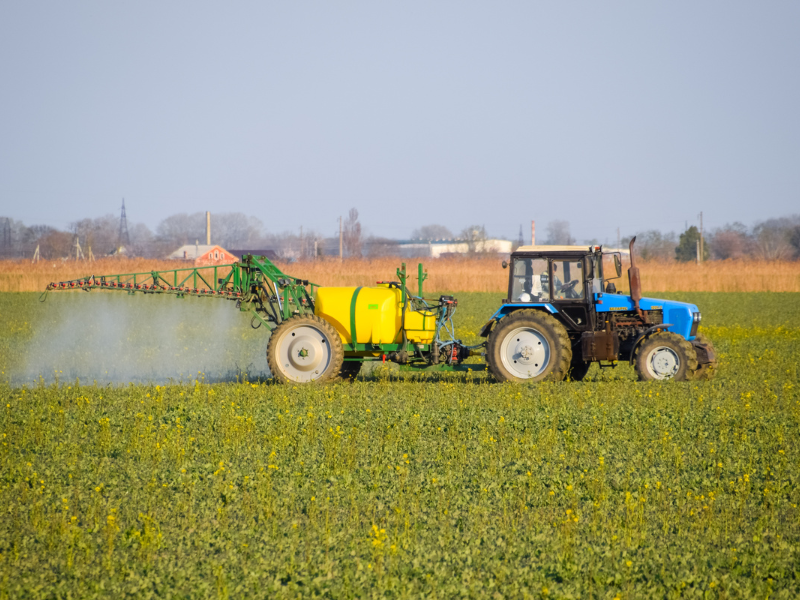Environmental groups have condemned the European Commission's recent proposal to extend the authorised sale of glyphosate by another ten years, claiming that the weed-killing chemical poses a major danger to the European economy and citizens' health.
"It would be insanity to give the big corporations a blank check for another 10 years to earn billions by selling a pesticide for which there are still big gaps in knowledge about the effects on our health, and at the same time poses large risks for European biodiversity," said Greens/EFA MEP Bas Eickhout, who also serves as Vice Chair on the European Parliament's Environment Committee.
Eickhout's words were echoed by Dr Angeliki Lysimachou of Pesticide Action Network Europe, an environmental umbrella group: "Industry interests clearly prevail over health and the environment," she said, adding that a recent IPSOS poll found that only one in seven Europeans were in favour of its prolonged use. "Citizens across EU countries will be outraged by this news."
Speaking to Euronews, an EU spokesperson defended the Commission's decision as "based on solid scientific information" but admitted that "new scientific elements could appear" that might cause Brussels to rescind its decision. "We must be aware that science never stops," the spokesperson added.
The Commission's proposal will be voted on by all 27 EU Member States in mid-October. A qualified majority of 15 countries which collectively represent at least 65% of the bloc's population is required in order for the extension to become EU law.
A controversial chemical
Glyphosate is the key ingredient in Roundup, a widely-used herbicide originally created by US agricultural giant Monsanto in the 1970s. The German company Bayer runs a glyphosate production facility in Antwerp employing hundreds of people. It acquired Monsanto for $63 billion in 2018.
The chemical's impact on humans has long been a matter of intense debate. In 2015, the International Agency for Research on Cancer (IARC), the specialised cancer agency of the World Health Organization (WHO), concluded that glyphosate is "probably carcinogenic to humans".
Conversely, in 2020 the US Environmental Protection Agency (EPA) reported that glyphosate "is unlikely to be a human carcinogen" and generally poses "no risks of concern to human health".
Related News
- Possible EU ban on glyphosate herbicide threatens hundreds of Belgian jobs
- Belgium must reduce pesticide use by 58%
That same year, however, Bayer paid out more than $10 billion to settle cases brought against it by more than 95,000 plaintiffs who argued that glyphosate did, in fact, cause a form of cancer known as non-Hodgkin's lymphoma. Bayer did not admit any wrongdoing or liability in the settlement.
In a further twist, just two months ago the European Food and Safety Authority (EFSA) published a peer-reviewed study which, much like the EPA, found that glyphosate "is unlikely to be carcinogenic for humans".
Bayer's share prices have nosedived since purchasing Monsanto five years ago. The Leverkusen-based company's shares are currently selling for approximately €50 apiece: less than half the amount in 2017.

